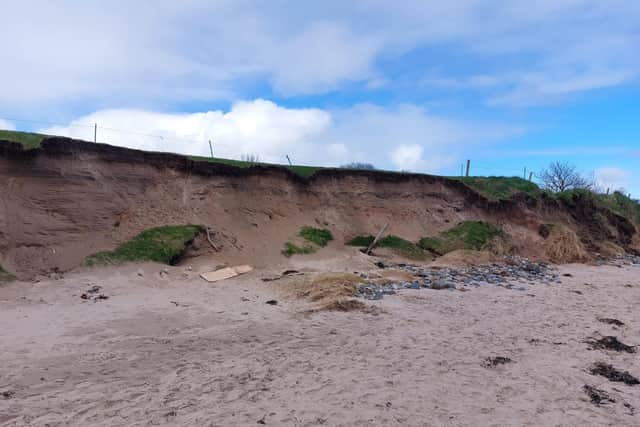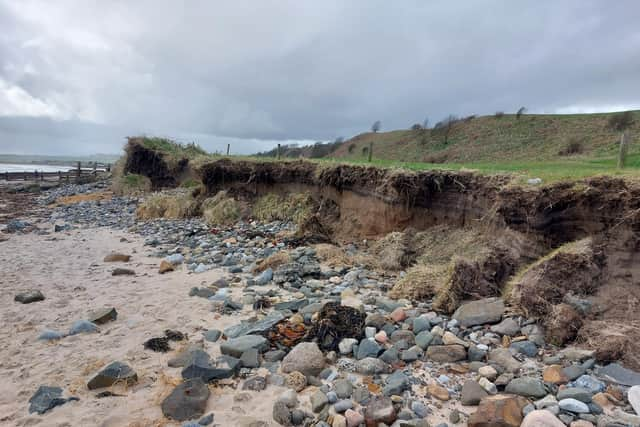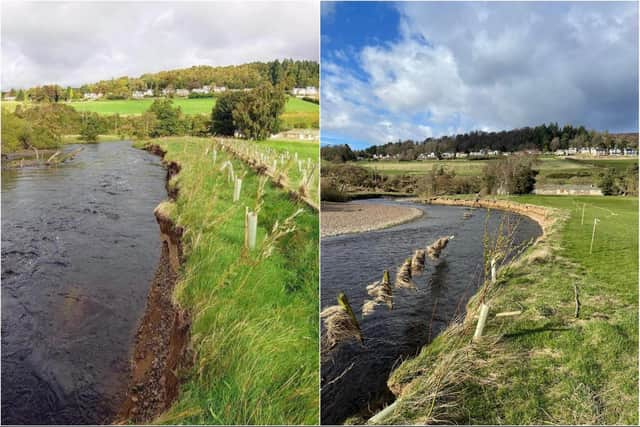Coastal erosion hits Alnmouth Village Golf Club, the oldest nine hole links course in England
and live on Freeview channel 276
Storms have had a notable change on the landscape at Alnmouth Village Golf Club where a portion of its fifth green now lies on the beach.
Anne-Marie Trevelyan MP has written to the Secretaries of State for Culture, Media and Sport, and Environment, Food and Rural Affairs, to seek their support to protect the club from the risk it is facing.
Advertisement
Hide AdAdvertisement
Hide Ad"Established in 1869, the club’s value to the culture and history of British sport – as the home of the oldest nine hole links course in England – cannot be overstated,” she writes.


"Unfortunately recent coastal erosion has threatened part of the course, despite action taken in the 60s and again in the 90s.
"My constituents and I hope that your department, working with Defra, may be able to support the club and Northumberland County Council to find a solution.”
There have also been other recent changes to the beach, such as the exposure of scrap concrete and World War Two coastal defence cement blocks.
Advertisement
Hide AdAdvertisement
Hide AdAn Alnmouth resident, who has been witnessing change in the area, said: “Every time it happens, it's taken more away from somewhere.


“If you stand up where the turf has fallen in and look down the beach you'll see a line of concrete about four foot wide. My father used to tell me that the golf course, when he was a child, went right out to there and the green was up on the plateau that that created. They had to make a new green as the sea was encroaching all those years ago. So it's nothing new.”
The coast, however, isn’t the only place with erosion issues.
Rothbury Golf Club has concerns over the changing route of the River Coquet, which is taking away 16ft (5m) of the course over a 328ft (100m) stretch each year.
Advertisement
Hide AdAdvertisement
Hide AdOne of Rothbury Golf Club’s directors, David Blakeburn, said: “It's a problem. Rivers do what rivers do so what we have to do is investigate what what can be done to counter the erosion, but the answer to that is very little. We’re in the hands of the Environment Agency and Natural England because the Coquet, from Hepple to Weldon Bridge, is a Site of Special Scientific Interest.


“We're just taking what action we can but it's all expensive.
"The sea is doing what the sea does but it's different with the river, because the river will never put that back. It will just erode and erode.
"In the meantime, we've had a bad winter, we've lost a lot more yardage, but we can cope for the moment and we'll see how it goes next winter. Hopefully the weather will ameliorate now and we can get back to having a full course.”